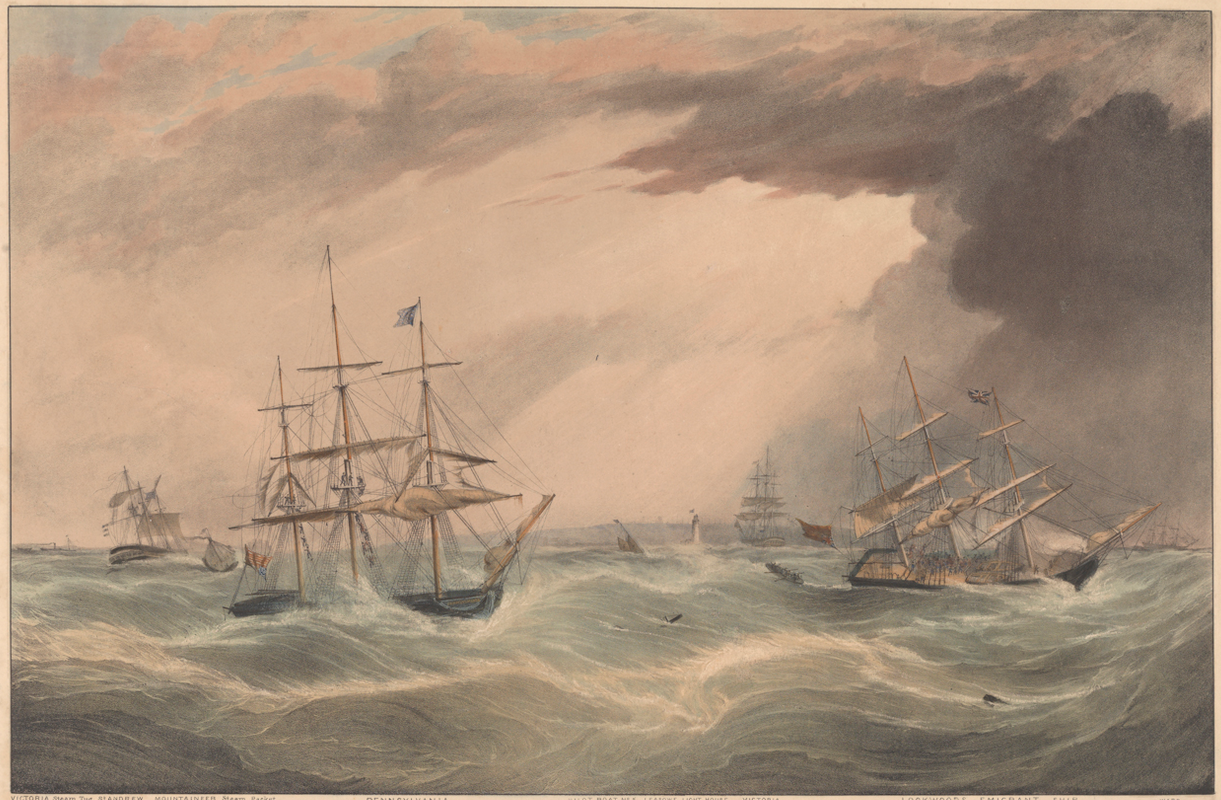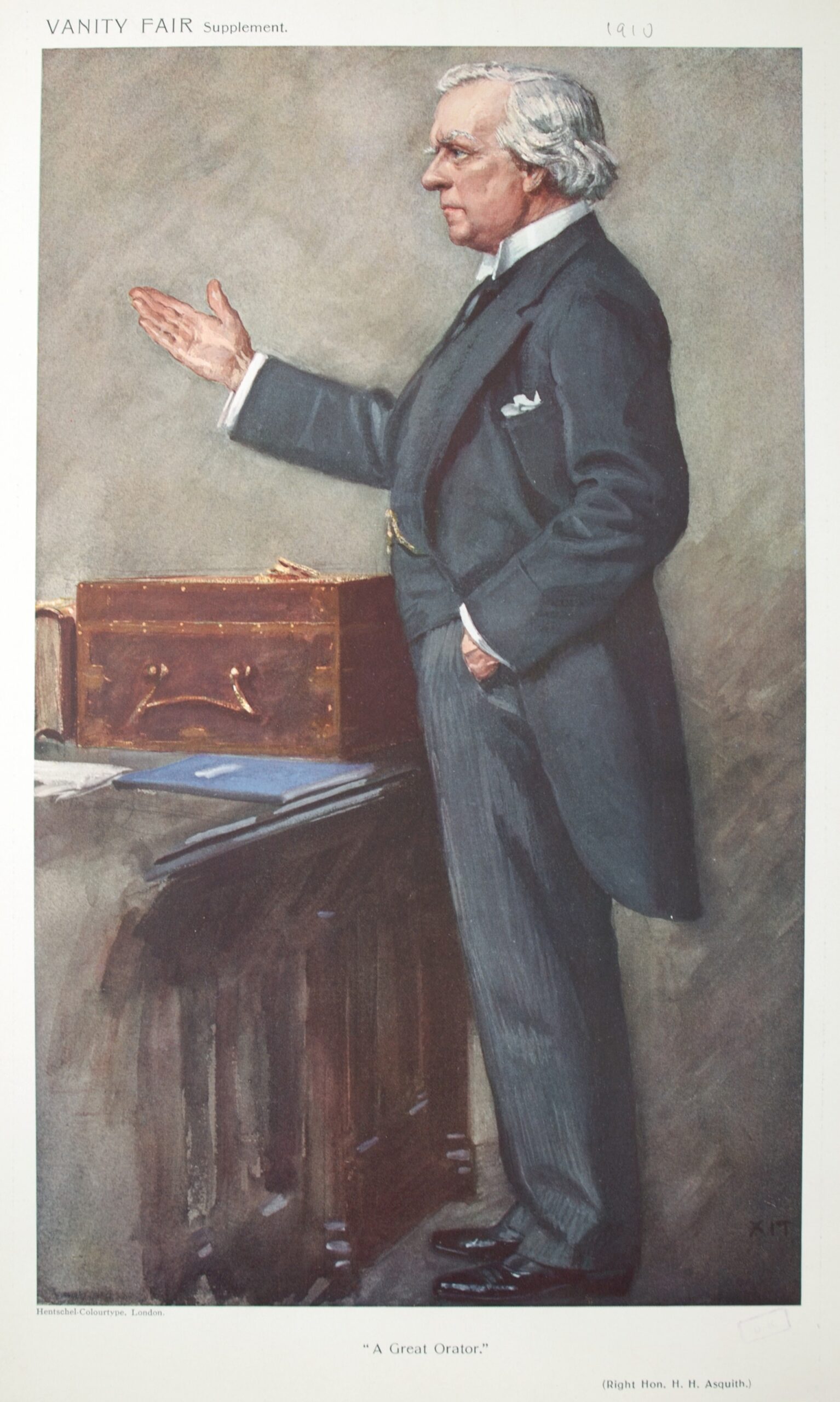BY AODHÁN CREALEY
JANUARY
06/1839
The ‘Night of the Big Wind’. With nothing on the barometer to indicate its approach, Ireland’s most devastating recorded storm hit the west coast in the afternoon and then moved eastwards, affecting the northern half of the country in particular and peaking between 2am and 5am. With winds described by the Enniskillen Chronicle as like ‘the deafening roar of a thousand pieces of artillery’, damage was extensive. Almost 5,000 chimneys were toppled and hundreds of thousands of trees were felled, including some 100,000 in Fermanagh’s Castle Coole estate. Yet the mortality figure was relatively low. Estimates vary but at least 100 lives were lost, half of them at sea, where over 40 ships went down, including the Andrew Nugent, which perished with her captain and fourteen-man crew off the coast of Donegal. The remainder were mostly the poor. As the Dublin Evening Post reported, ‘every part of Ireland, every field, every town, every village have felt its dire effects from Galway to Dublin, from the Giant’s Causeway to Valentia’. Indeed, more people were left homeless than in all the evictions over subsequent decades in Ireland. There was, of course, a second ‘Big Wind’ early in the last century. A series of storms in February 1903 included a powerful one that left the streets of the capital strewn with debris and uprooted some 3,000 trees in Phoenix Park. That particular storm became known as the Ulysses Storm after James Joyce in his famous novel wrote: ‘“O yes”, J.J. Molloy said eagerly, “Lady Dudley was walking home through the park to see all the trees that were blown down by that cyclone last year and thought she’d buy a view of Dublin”.’

07/1975
The trawler Evelyn Marie foundered off Rathlin O’Beirne island in south Donegal with the loss of her six-man crew.
07/1975
Sinéad Bean de Valera (96), teacher, folklorist, writer and widow of Eamon de Valera, died.
08/1975
Eamon Barnes was appointed Ireland’s first Director of Public Prosecutions (DPP), a post he held for 25 years.
10/1945
Twenty-two people died and a further 27 were injured when a goods train collided with a stationary passenger train in Ballymacarrett, Belfast, the worst rail crash since the Armagh railway disaster (1889), when 80 died.
22/1875
D.W. Griffith, pioneering film director, notably of the controversial The Birth of a Nation (1915), which opened to great acclaim to selected audiences in Ireland during the autumn of the following year, born in Kentucky.
26/1925
Paul Newman, multi-award-winning actor and philanthropist who founded the Barretstown Camp in Ballymore Eustace, Co. Kildare, for children with cancer and other serious illnesses, born in Ohio.
27/1945
Auschwitz concentration camp in occupied Poland, where 1.1 million people were murdered, was liberated by the Soviet Red Army.
30/1965
The State funeral for Sir Winston Churchill took place, attended by representatives from 120 countries. Ireland was the only country in Europe not to transmit live television coverage of the event.
31/1975
The Gardiner Report recommended continuation of detention without trial (internment) in Northern Ireland as a ‘short-term necessity’ and, ominously, that ‘special category’ or political status, introduced three years earlier, should be abolished.
31/2005
Robert McCartney (33) was beaten and fatally stabbed by members of the IRA after a brawl in a Belfast city-centre public house. His death, for which no one was held accountable, led to serious political difficulties for Sinn Féin and the Northern Ireland peace process.
FEBRUARY
15/1928

H.H. Asquith (75), British prime minister 1908–16, died. Generations of history students will remember Asquith as the Liberal leader who introduced the third Home Rule Bill (1910) in return for the parliamentary support of John Redmond’s Irish Parliamentary Party—and how he failed to confront both militant unionism, the UVF and the Irish Volunteers with his attitude of ‘wait and see’ and effectively killed off Home Rule by bringing the likes of Edward Carson and the Conservative leader, Bonar Law, into his coalition government (May 1915). And, indeed, how he washed his hands of the Easter Rising, sending Sir John Maxwell to deal with it and only travelling to Dublin in its aftermath when all the damage had been done. In British history he is traditionally remembered for his considerable intellect, as a man who spent most of his time at leisure—reading, playing golf, wining and dining, spending weekends in stately homes—but still played a key role in creating the British welfare state (1906–11). On the other hand, he was a failure as a wartime leader, allowing Churchill, for instance, to implement his vastly over-ambitious and disastrous Gallipoli campaign. Indeed, he was ousted as leader by Lloyd George in December 1916. Nowadays, however, he is better remembered for less salubrious reasons—as the prime minister who, at the age of 61 and with his country facing an inevitable war, was otherwise totally engaged in an affair with the 26-year-old socialite Venetia Stanley. Over the period 1912–15 she was his constant companion, privy to all manner of government business and the recipient of up to four letters a day from the man she called her ‘Darling Prime’.
02/2000
Francis Stuart (97), writer who remains a controversial figure on account of his associations with Nazi Germany during the Second World War, died.
07/1875
Sir Chester Beatty, mining magnate, philanthropist and honorary citizen of Ireland (1957), born in New York city.
10/1965
Contrary to expectations that Derry would be chosen as the site for a new university, the Lockwood Report instead chose nearby Coleraine.
10/1975
The IRA resumed their ceasefire, in operation since just before Christmas the previous year. ‘Incident centres’ were set up in Catholic districts to monitor it, and the phasing-out of internment was speeded up.
15/1995
A friendly international match between the Republic of Ireland and England at Lansdowne Road had to be abandoned when English fans, infiltrated by members of the neo-Nazi group Combat 18, rioted. Dozens were injured and 40 arrests were made.
19/1875
In their first rugby international, at Kennington Oval, London, Ireland were defeated by England by two goals and a try to nil.
23/1975
Ernest Blythe (86), politician, writer and managing director of the Abbey Theatre (1941–67), best remembered, perhaps, as the minister for finance (1923–32) who reduced the old age pension from ten shillings to nine (1924), died.
23/1985
Three members of the IRA, aged 16, 20 and 22, who were preparing an ambush were shot dead by an SAS unit in a field outside Strabane, Co. Tyrone.
28/1985
Nine RUC officers, including a chief inspector, were killed when one of nine IRA mortar bombs fired from a lorry in a nearby street struck a canteen inside Newry RUC station. Dozens of others, including many civilians, were injured.
